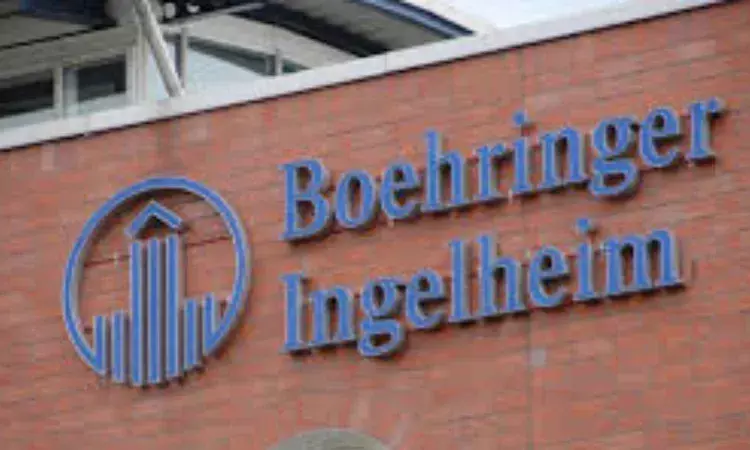- Home
- Medical news & Guidelines
- Anesthesiology
- Cardiology and CTVS
- Critical Care
- Dentistry
- Dermatology
- Diabetes and Endocrinology
- ENT
- Gastroenterology
- Medicine
- Nephrology
- Neurology
- Obstretics-Gynaecology
- Oncology
- Ophthalmology
- Orthopaedics
- Pediatrics-Neonatology
- Psychiatry
- Pulmonology
- Radiology
- Surgery
- Urology
- Laboratory Medicine
- Diet
- Nursing
- Paramedical
- Physiotherapy
- Health news
- Fact Check
- Bone Health Fact Check
- Brain Health Fact Check
- Cancer Related Fact Check
- Child Care Fact Check
- Dental and oral health fact check
- Diabetes and metabolic health fact check
- Diet and Nutrition Fact Check
- Eye and ENT Care Fact Check
- Fitness fact check
- Gut health fact check
- Heart health fact check
- Kidney health fact check
- Medical education fact check
- Men's health fact check
- Respiratory fact check
- Skin and hair care fact check
- Vaccine and Immunization fact check
- Women's health fact check
- AYUSH
- State News
- Andaman and Nicobar Islands
- Andhra Pradesh
- Arunachal Pradesh
- Assam
- Bihar
- Chandigarh
- Chattisgarh
- Dadra and Nagar Haveli
- Daman and Diu
- Delhi
- Goa
- Gujarat
- Haryana
- Himachal Pradesh
- Jammu & Kashmir
- Jharkhand
- Karnataka
- Kerala
- Ladakh
- Lakshadweep
- Madhya Pradesh
- Maharashtra
- Manipur
- Meghalaya
- Mizoram
- Nagaland
- Odisha
- Puducherry
- Punjab
- Rajasthan
- Sikkim
- Tamil Nadu
- Telangana
- Tripura
- Uttar Pradesh
- Uttrakhand
- West Bengal
- Medical Education
- Industry
Boehringer Ingelheim Spevigo injection for generalized pustular psoriasis flares gets CDSCO nod

Mumbai: The Central Drugs Standard Control Organisation (CSDCO) in India has approved Boehringer Ingelheim's SPEVIGO (spesolimab) injection, a first-in-class treatment for generalised pustular psoriasis (GPP) flares in adults.
Spesolimab is a novel, selective antibody that blocks the activation of the interleukin-36 receptor (IL-36R), a signaling pathway within the immune system shown to be involved in the pathogenesis of GPP.
In the EFFISAYIL 1 Phase II global clinical trial, patients experiencing a GPP flare were treated with spesolimab or placebo. Most patients at the outset of the trial had a high, or very high, density of pustules, and impaired quality of life. After one week, 54% of patients treated with spesolimab showed no visible pustules compared to placebo (6%).
In India, GPP presents a significant healthcare challenge, affecting individuals of all ages and demographics. While precise prevalence data for GPP in India is limited, GPP is widely recognized as a rare disease.
GPP is a rare and unpredictable systemic disease, with predominant skin symptoms, that is distinct from plaque psoriasis in both its disease mechanism and severity. Given that it is so rare, recognizing the symptoms can be challenging, which lead to delays in diagnosis. It manifests with painful pus-filled blisters, redness, inflammation, and scaling on the skin, often accompanied by systemic symptoms like fever and fatigue. Timely diagnosis and treatment are crucial, yet challenges in misdiagnosis and delayed intervention persist, due to the rarity of GPP and its similarities to other skin conditions like psoriasis, leading to inadequate management and prolonged suffering for patients. Moreover, triggers for GPP flares, including stress, infections, certain medications, hormonal changes, and environmental factors, vary widely among individuals, making it challenging to predict and manage the condition effectively.
“The approval of SPEVIGO by the CDSCO represents a significant milestone in GPP management in India and underscores our commitment to bring novel therapies into the country. We often take our skin for granted. However, for a small percentage of people with a rare, lifelong skin disorder, living in constant anticipation of possible flares that could require emergency medical care is a harsh reality. Some patients often describe the feeling akin to ‘being on fire’. SPEVIGO's impact goes beyond treatment; it's about giving patients the chance to reclaim their lives. It presents a promising opportunity for enhancing effective management, quality of life, and patient outcomes in India, instilling hope for individuals grappling with GPP,” said Gagandeep Singh Bedi, Managing Director, Boehringer Ingelheim India.
Dr. Shraddha Bhure, Medical Director, Boehringer Ingelheim India highlighted the significance of this development. “GPP is a debilitating condition, with serious symptoms like flares and pustules that can significantly impact patients' ability to perform daily activities, often leading to significant morbidity and impaired quality of life. SPEVIGO, a targeted therapy, has been shown to effectively reduce the severity of GPP flares, providing patients with an innovative treatment that specifically targets the underlying inflammation associated with GPP, thus providing relief from the distressing symptoms of the disease.”
People living with GPP often do not receive a correct or timely diagnosis and may have their symptoms identified as other forms of psoriasis. A Global Consensus Delphi Panel of experts concluded a systematic literature review that classified GPP as phenotypically, genetically, immunologically, and histopathologically distinct from psoriasis vulgaris/plaque psoriasis. The growing list of regulatory approvals for SPEVIGO underlines that the Delphi panel’s vision of improved diagnosis and treatment for people with GPP is increasingly achievable.
Ruchika Sharma joined Medical Dialogue as an Correspondent for the Business Section in 2019. She covers all the updates in the Pharmaceutical field, Policy, Insurance, Business Healthcare, Medical News, Health News, Pharma News, Healthcare and Investment. She has completed her B.Com from Delhi University and then pursued postgraduation in M.Com. She can be contacted at editorial@medicaldialogues.in Contact no. 011-43720751


